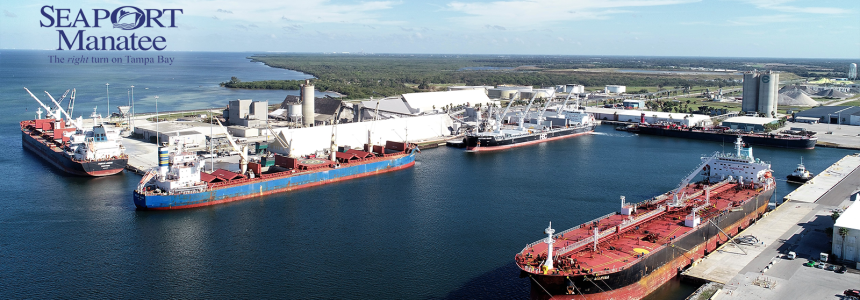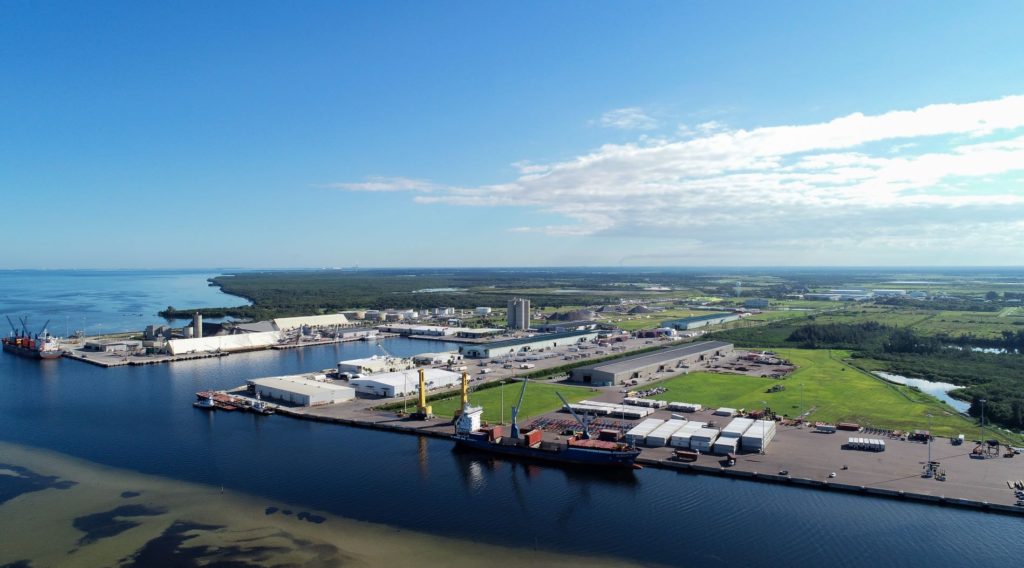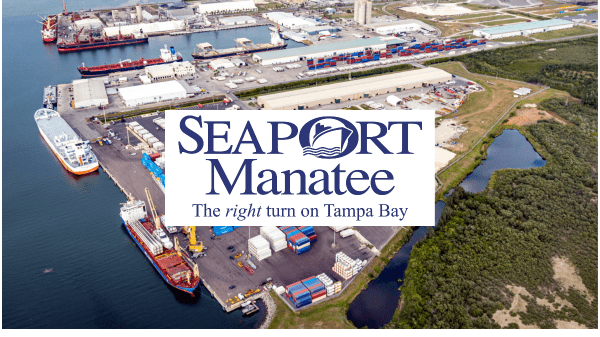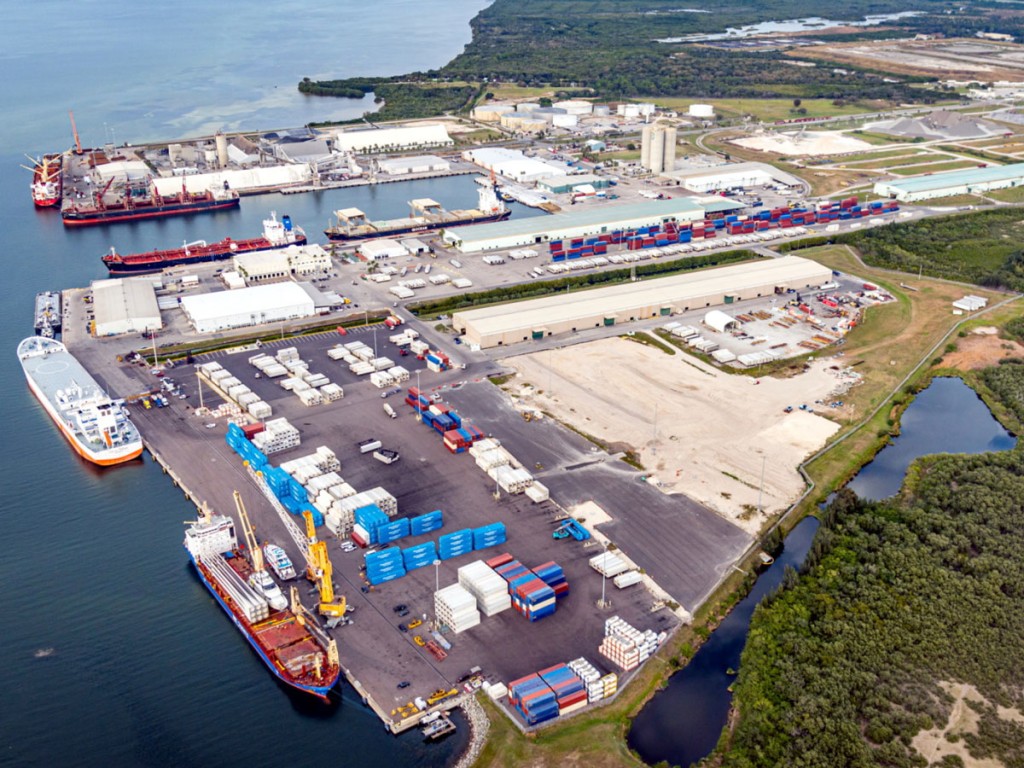Port Manatee: A Gateway To Global Trade In Florida
Port Manatee: A Gateway to Global Trade in Florida
Related Articles: Port Manatee: A Gateway to Global Trade in Florida
Introduction
With great pleasure, we will explore the intriguing topic related to Port Manatee: A Gateway to Global Trade in Florida. Let’s weave interesting information and offer fresh perspectives to the readers.
Table of Content
Port Manatee: A Gateway to Global Trade in Florida

Port Manatee, strategically located on the west coast of Florida, is a vital hub for international trade and commerce. Its strategic positioning, modern infrastructure, and commitment to efficient operations make it a compelling choice for businesses seeking seamless access to global markets. This article delves into the significance of Port Manatee, its key features, and its impact on the local and global economy.
A Geographical Advantage:
Port Manatee enjoys an enviable location on the Gulf Coast of Florida, offering direct access to the Gulf of Mexico and the Intracoastal Waterway. This strategic positioning facilitates swift and efficient transportation of goods to and from various destinations along the Atlantic and Gulf coasts.
A Comprehensive Infrastructure:
Port Manatee boasts a robust infrastructure designed to handle a wide range of cargo types. Its facilities include:
- Deepwater Berths: With depths ranging from 38 to 42 feet, the port can accommodate large vessels, including container ships, bulk carriers, and cruise ships.
- Modern Terminals: The port features dedicated terminals for handling various cargo types, including containerized goods, bulk commodities, and breakbulk shipments.
- Efficient Cargo Handling Equipment: State-of-the-art cranes, forklifts, and other cargo handling equipment ensure swift and efficient loading and unloading operations.
- Extensive Rail and Road Connections: Direct access to major rail lines and highways provides seamless connectivity for inland transportation of goods.
- On-Site Logistics Services: Port Manatee offers a range of logistics services, including warehousing, distribution, and customs brokerage, simplifying the supply chain process for businesses.
Economic Impact and Benefits:
Port Manatee plays a crucial role in the economic well-being of the region and the state of Florida. Its operations generate significant economic activity, contributing to:
- Job Creation: The port supports thousands of jobs in various sectors, including transportation, logistics, warehousing, and manufacturing.
- Revenue Generation: Port activities generate substantial revenue for the local economy, contributing to tax income and supporting public services.
- Business Growth: The port provides businesses with efficient and cost-effective access to global markets, fostering economic growth and competitiveness.
- Community Development: The port’s operations contribute to the overall development of the surrounding community, attracting new businesses and investments.
Beyond Cargo: A Multifaceted Port:
Port Manatee is not just a cargo hub; it also plays a significant role in the cruise industry. The port serves as a homeport for several cruise lines, attracting tourists and contributing to the region’s tourism sector. Additionally, the port is actively involved in supporting local businesses and fostering community engagement through various initiatives.
Navigating the Future:
Port Manatee continues to invest in its infrastructure and operations to remain competitive in the ever-evolving global trade landscape. Its ongoing expansion projects and commitment to sustainable practices ensure its continued success and contribution to the economic growth of Florida and beyond.
FAQs about Port Manatee:
1. What types of cargo are handled at Port Manatee?
Port Manatee handles a wide range of cargo types, including:
- Containerized goods: Various consumer products, industrial goods, and manufactured goods.
- Bulk commodities: Agricultural products, minerals, and raw materials.
- Breakbulk shipments: Large or heavy items requiring specialized handling.
- Project cargo: Large and complex items requiring specialized transportation and handling.
2. What are the major industries served by Port Manatee?
Port Manatee serves a diverse range of industries, including:
- Agriculture: Export of citrus fruits, vegetables, and other agricultural products.
- Manufacturing: Import and export of manufactured goods, including automotive parts, machinery, and electronics.
- Energy: Import and export of petroleum products, natural gas, and other energy resources.
- Construction: Import and export of building materials, including steel, cement, and lumber.
- Retail: Import and export of consumer goods, including clothing, electronics, and furniture.
3. How does Port Manatee contribute to the local economy?
Port Manatee’s operations generate significant economic activity, contributing to:
- Job creation: The port supports thousands of jobs in various sectors, including transportation, logistics, warehousing, and manufacturing.
- Revenue generation: Port activities generate substantial revenue for the local economy, contributing to tax income and supporting public services.
- Business growth: The port provides businesses with efficient and cost-effective access to global markets, fostering economic growth and competitiveness.
- Community development: The port’s operations contribute to the overall development of the surrounding community, attracting new businesses and investments.
4. What are Port Manatee’s future plans?
Port Manatee is committed to ongoing expansion and modernization to remain competitive in the global trade landscape. Future plans include:
- Infrastructure upgrades: Continued investment in modernizing terminals, berths, and cargo handling equipment.
- Expansion projects: Expanding the port’s capacity to handle increased cargo volume.
- Sustainability initiatives: Implementing environmentally friendly practices to reduce the port’s environmental footprint.
Tips for Businesses Using Port Manatee:
- Research and Plan: Thoroughly research the port’s capabilities and services to ensure they align with your business needs.
- Establish Relationships: Build strong relationships with port officials and logistics providers to streamline operations.
- Utilize Port Resources: Take advantage of the port’s on-site logistics services, including warehousing, distribution, and customs brokerage.
- Stay Informed: Keep abreast of port updates, including infrastructure improvements and new services, to optimize your operations.
Conclusion:
Port Manatee stands as a vital economic engine for the region and the state of Florida, facilitating international trade and contributing to economic growth. Its strategic location, modern infrastructure, and commitment to efficient operations make it a compelling choice for businesses seeking seamless access to global markets. As the port continues to invest in its future, it is poised to play an even greater role in shaping the economic landscape of Florida and beyond.








Closure
Thus, we hope this article has provided valuable insights into Port Manatee: A Gateway to Global Trade in Florida. We appreciate your attention to our article. See you in our next article!
You may also like
Recent Posts
- Navigating The Landscape: A Comprehensive Guide To South Dakota Plat Maps
- Navigating The Tapestry Of Malaysia: A Geographical Exploration
- Navigating The World Of Digital Maps: A Comprehensive Guide To Purchasing Maps Online
- Unlocking The Secrets Of Malvern, Arkansas: A Comprehensive Guide To The City’s Map
- Uncovering The Treasures Of Southern Nevada: A Comprehensive Guide To The Caliente Map
- Unraveling The Topography Of Mexico: A Comprehensive Look At The Relief Map
- Navigating The Heart Of History: A Comprehensive Guide To The Athens City Map
- Navigating The Beauty Of Greece: A Guide To Printable Maps
Leave a Reply